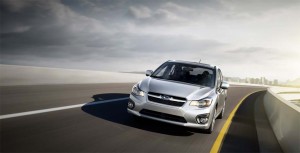The recall of more than 660,000 Subarus for brake lines that may rust and leak fluid, pushed the total for this year to more than 40 million vehicles.
The Japanese maker recalled 2005-2009 Legacys and Outbacks, 2008-2014 Imprezas and 2009-2013 Foresters. If the brake lines rust and leak, it can reduce the ability to brake quickly.
In some cases, it’s the second time for the recall: about 274,000 Legacy and Outback vehicles were recalled for the same problem in March 2013.
It covers vehicles sold or registered in Connecticut, Delaware, Illinois, Indiana, Iowa, Maine, Maryland, Massachusetts, Michigan, Minnesota, Missouri, New Hampshire, New Jersey, New York, Ohio, Pennsylvania, Rhode Island, Vermont, West Virginia, Wisconsin and Washington, D.C., where salt is used to clear roads in the winter.
Salty water can get onto the brake lines through a gap in the fuel tank protector, causing the lines to rust, according to documents filed with the National Highway Transportation Safety Administration.
Dealers will inspect the lines and replace them if leaks are found. They’ll also apply anti-corrosion wax. For the Legacys and Outbacks coming in a second time, additional areas must to be rust proofed, NHTSA said.
(Mazda to reveal new MX-5 Miata on Sept. 3. For more, Click Here.)
This recall continues the hyper-activity of automakers trying to fix past problems. General Motors alone has recalled 25.7 million vehicles this year. That’s close to the total number of vehicles recalled all of last year.
(Click Here for details about how a looming dock workers strike could hurt auto sales.)
While it is easy to point the finger at GM and say it’s the reason for the new record, if the maker had just had a “normal” year for recalls, the industry would still be on pace to break the previous record of 33.01 million vehicles recalled in 2004.
(To see how Hurricane Arthur could dampen record holiday driving season, Click Here.)
Joe Hinrichs, Ford’s president of the Americas, told TheDetroitBureau.com recently that nothing has changed regarding the commitment to bring safe vehicles to customers or to fix something that a maker may realize is wrong. However, improvements in technology and the access to data has improved so much that makers are better able to analyze that information more quickly and make decisions sooner.

